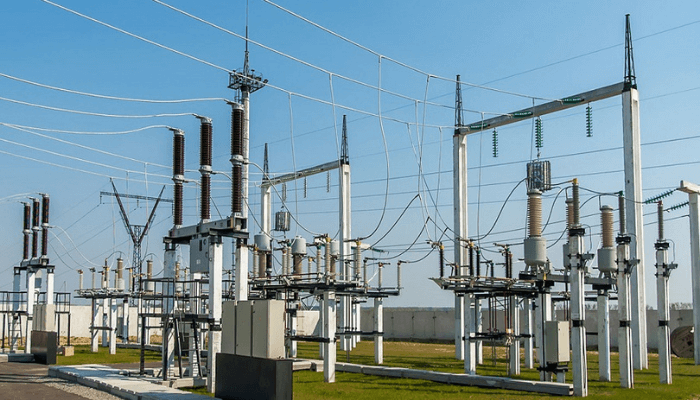The Nigerian Electrical energy Regulatory Fee (NERC) has formally cleared the air, dismissing widespread rumours of a rise in electrical energy tariffs beginning January 1st, 2024.
On Sunday morning, there are experiences Nigeria’s electrical energy distribution corporations (DisCos) are reportedly planning to hike electrical energy tariffs nationwide with impact from January 1, 2024.
Based on the experiences, “All has been perfected for the brand new tariff to take impact from the primary of January, 2024”.
BusinessDay reached out to Usman Abba, the spokesperson of NERC who stated the tariff hike rumours are faux information.
He categorically denied any approval for such a tariff hike, emphasising that the electrical energy tariff order at present in impact stays unchanged.
“NERC has not issued any order to DisCos regarding tariff hike; we often have conferences with all stakeholders earlier than any proposed enhance, however we’ve not had any assembly with any DisCos regarding worth enhance,” Abba stated on Sunday Afternoon.
Specialists stated the above improvement signifies rising electrical energy subsidies for Africa’s greatest economic system.
Adetayo Adegbemle, the chief director of PowerUp Nigeria, an influence client advocacy group stated bridging the hole between the cost-reflective tariff and the allowed tariff, has develop into a major burden on authorities funds, elevating issues about its sustainability.
“The electrical energy subsidy in Nigeria has develop into a monetary burden and is now not sustainable. Pressing motion is required to deal with the disparities in subsidy distribution, forestall additional pressure on authorities funds, and redirect sources to areas the place they will have a extra vital impression,” Adegbemle stated.
NERC’s quarterly experiences indicated that electrical energy subsidies gulped N204.59 billion within the third quarter of 2023 and N135.23 billion in Q2, which is considerably greater than the N36.02 billion in Q1 2023.
“The Multi-Yr Tariff Order (MYTO) in 2022 to step by step remove the subsidy. Nevertheless, challenges arose with the freeze on tariff critiques in July 2023, disrupting the progress made in phasing out the subsidy,” Adegbemele stated.
On 25 June 2023, BusinessDay reported that Abuja DisCos, in a be aware to their prospects, had knowledgeable of a rise in electrical energy tariff efficient 1 July.
The DisCos assertion prompt that the tariff enhance is a response to the floating of the naira and goals to make sure that the electrical energy trade stays financially viable and sustainable within the face of foreign money challenges.
The DisCos assertion prompt that the tariff enhance is a response to the floating of the naira and goals to make sure that the electrical energy trade stays financially viable and sustainable within the face of foreign money challenges.
“Below the MYTO 2022 pointers, the beforehand set alternate fee of N441/1 greenback might now be revised to roughly N750/1 greenback, impacting the tariffs related along with your electrical energy consumption,” Abuja DisCos stated.
However on June 29 2023, Abuja DisCos knowledgeable its prospects to ignore the publication saying it was but to get approval to start the tariff hike.
“Pricey Esteemed Clients, please disregard the communication circulating within the media concerning the evaluate of electrical energy tariffs. Be told that no approval for such increments has been acquired,” the corporate stated in a Twitter put up.
MYTO 2022
The MYTO is a framework NERC makes use of to find out electrical energy tariffs in Nigeria. It supplies pointers for a structured strategy to calculating and reviewing tariffs to make sure transparency, price restoration, and sustainability within the energy sector.
It supplies a 15-year tariff path for the Nigerian electrical energy trade and undergoes common critiques to account for adjustments in elements corresponding to inflation, alternate fee, gasoline worth and technology capability.
Main critiques are carried out each 5 years, throughout which all inputs are reviewed in session with stakeholders, whereas the minor critiques are executed bi-annually, which contain gathering precise information from the Nationwide Bureau of Statistics, Central Financial institution of Nigeria and System Operations Unit of Transmission Firm of Nigeria.
In 2015, the common tariff throughout Discos and courses of end-users was N25 kilowatt. And on September 1, 2020, the common tariff was reviewed upward to N60 per kilowatt and later went as much as N64 in 2022.
The overseas alternate fee utilized in figuring out the 2015 tariff was N198.97/$. The native foreign money devalued to N383.80/$ in 2020 and additional weakened to N441.78/$ in 2022. A greenback at present sells for over N750 on the official foreign exchange market.
The inflation fee used within the 2015 MYTO was 8.3 per cent, accelerated to 12 per cent in 2020 and worsened to 16.97 per cent in 2022.


